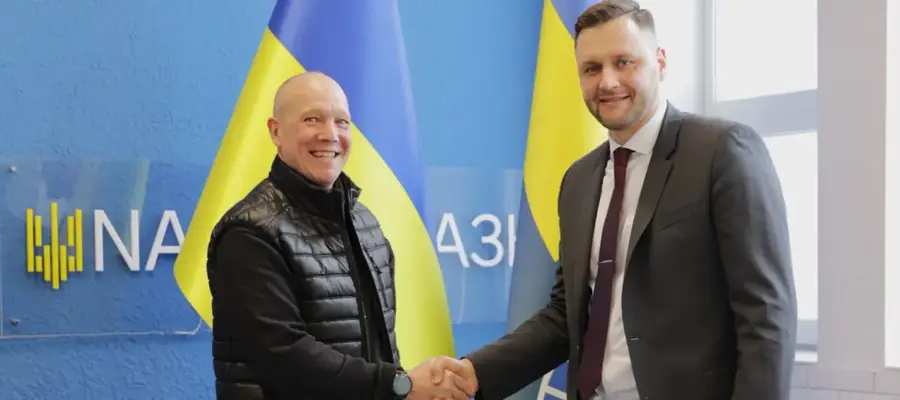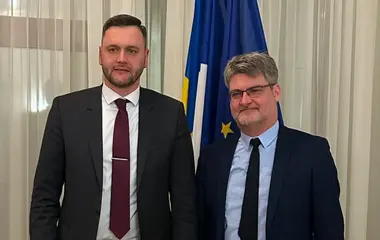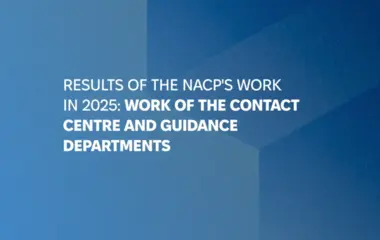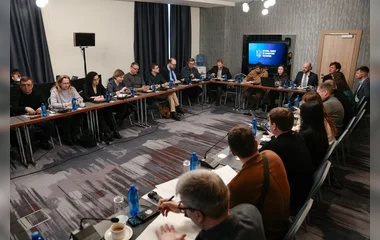In the context of corruption coverage, the Ukrainian media's attention is mainly focused on communicating specific corruption cases, while social media is dominated by general discussions about corruption without references to factual data, analysis of specific cases and problems. The mood in social media regarding the fight against corruption is traditionally much gloomier than in the media. This is evidenced by the results of media monitoring of the information space in the fourth quarter of 2024, conducted by the Content Analysis Center at the request of the National Agency on Corruption Prevention (NACP) with the financial support of the European Union Anti-Corruption Initiative in Ukraine (EUACI).
The Ukrainian media segment was dominated by messages describing specific situations, while messages with general comments about corruption accounted for 39%. On social media, the ratio was the opposite: 39% of posts were about specific corruption cases and 61% were value judgments and expressions without facts or specifics.
The media covered a more balanced set of theses, ranging from statements about the existence of corruption despite the war to messages about the anti-corruption effect of digitalization and the growing number of cases of exposing corrupt officials. In general, in 2024, the number of abstract discussions of corruption in the media decreased significantly (in 2023, there were 54% of such reports).
At the same time, the most popular topics on social media were broadcast in a negative tone and focused on the prevalence of corruption during the war, the inability of Ukraine to join the EU and NATO due to corruption, etc.
It is noteworthy that pessimistic discourse about the impunity of corruption and the futility of fighting it is most common on social media. The share of such messages has doubled compared to the previous quarter, from 21% to 40%.
At the same time, while the key speakers on corruption in the media were politicians, officials, military and pro-Ukrainian opinion leaders, popular sources on social media include resources that have long been in the field of view of law enforcement agencies (the Resident telegram channel, the networks of Oleg Tsarev, who was sentenced to prison, and propagandist Diana Panchenko, who was suspected of treason, etc.)
At the same time, for the first time in a year, the share of anti-corruption-related posts on social media, which had never exceeded 1% in 2024, increased to 15%, in part due to popular bloggers' attention to rewarding corruption whistleblowers.
"Comparison of media monitoring data and a sociological survey commissioned by the NACP confirms the significant impact of the information space on the perception of corruption in society. We see clear trends where more and more Ukrainians use social media as the main source of information and where most of the negative publicity around corruption is generated on social media. In 2024, the share of unsubstantiated reports of widespread corruption in Ukraine increased compared to the previous year, which was also reflected in the increase in the percentage of citizens who consider corruption to be very widespread. Despite the increase in the number of convictions of top officials and the steady decline in the number of personal corruption experiences, citizens' assessment of the overall situation with corruption is deteriorating. “This is natural given the narratives cultivated on social media, especially on Telegram, which has a large network of anonymous, including pro-Russian, channels,” says Olena Konoplia, Head of the NACP's Communications and Information Policy Department. - “For several years, there has been a paradox in our society: the more open the anti-corruption agencies are in disclosing the results of their activities (initiated proceedings, suspicions, sentences), the more information about it is in the media, and the more people have the impression that corruption is so widespread that no positive changes can be expected. However, the cause-and-effect relationship should be different: a case, a suspicion, a sentence are signs of a decrease in corruption, not an increase. Before the Revolution of Dignity, corruption was not exposed systematically and at a high level, and it was not talked about so much and so often. Currently, anti-corruption bodies are trapped in public opinion, created by a low understanding of what exactly corruption is, as it is often synonymous with all possible negative phenomena for Ukrainians. Russia continues to play on this theme skillfully, spreading disinformation about Ukraine's alleged total corruption to destroy Ukrainian unity and support for our partners. We need to shift the public discourse on corruption into a more substantive and constructive direction than it is now".
The share of reports on institutional corruption (high-level corruption or corruption in government agencies) in the media reached 75% of all references to corruption, the highest figure for the year. Thus, the media attention to other types of corruption decreased to the lowest level. Reports on institutional corruption were mainly focused on the scandals surrounding the Medical and Social Expert Commission and abuses at the Territorial Recruitment and Social Support Centers.
Domestic corruption ranked second in terms of the number of reports (13% of all corruption reports), although it traditionally gave way to corporate corruption (8%). The share of reports of corruption in local government decreased to 4%).
The topic of institutional corruption was also dominant in social media (87%). The share of such posts was even higher than in the media. Corporate corruption (6%), domestic corruption (5%) and corruption in local government (2%) were much less frequently reported on social media.
Reports of corruption related to the war increased in late 2024, reaching almost half of the total number of corruption reports (40% in the third quarter ). This is primarily due to the coverage of regional MSEC cases, revelations in the military sphere, and the state's attempts to put things in order. There was a noticeable increase in the number of emotional accusations against the state and citizens of involvement in corruption.
In general, the information space is traditionally full of discourse about punishment for corruption. At the same time, the share of publications that referred to the prevention of corruption almost doubled in September-December 2024 compared to the third quarter (6%). The topics of these publications were closely related to the prevention of corruption in the MSEC and Territorial Recruitment and Social Support Centers, in particular, to digitalization measures.
The foreign media became significantly more frequent in broadcasting messages about the intractability of corruption in Ukraine: 35% of publications compared to 13% in the third quarter of 2024. The narrative of corruption as an obstacle to joining the EU and NATO was most actively used by German media. However, most foreign media materials contained only a general statement of corruption in Ukraine as one of the key problems during the war without providing specific data.
The media study was conducted on the basis of a sample of the Top 100 platforms, which includes information sites and print media, as well as news reports from seven TV channels (Telethon “United News”, Pryamyi, Channel 5, Espresso, Channel 24, Kyiv and Suspilne Kyiv). In this sample, 32260 messages with mentions of the words “corruption”, “bribery” and others were found during the study period.
In social media, we analyzed 800 of the most popular posts on Facebook, Telegram, and Youtube, which were the most widely shared and had the largest number of contacts with the audience. Both purely Ukrainian accounts and pro-Russian accounts targeting the Ukrainian audience were taken into account.
Quarterly monitoring of media on corruption and anti-corruption is envisaged by the Strategy for Communications in the Field of Countering and Preventing Corruption for the period up to 2025 and the State Anti-Corruption Program for 2023-2025.









